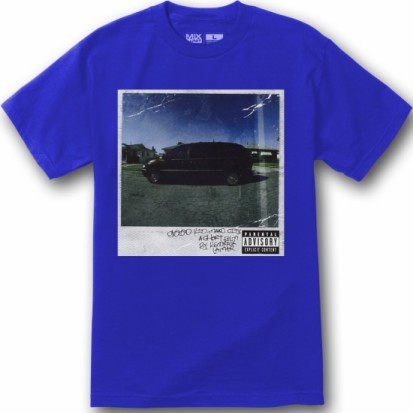
When he makes it out to better things at the end of the album, it’s partly because he had the talent and the far-sightedness to figure out what steps he had to take. But he’s also young and prone to doing dumb stuff, to delight in doing that dumb stuff, sometimes because he wants to see himself as the archetype that Snoop once embodied so completely. The album title more or less spells it out: He’s smart and introspective and wants better things for himself and his family. Kendrick, by contrast, is a recognizable, empathetic human being coming up in a place that does not value humanity. It’s weird to think that 2012 Kendrick is three years older than 1993 Snoop was, since Snoop seemed completely in control of the world around him: Calm and laconic, his constant intoxication never enough to stop him from snapping necks at the slightest provocation. But even if the environment is roughly the same, Kendrick’s character is vastly different.

City is a sprawling, expansive, near-orchestral world-building, an image of a young man growing up in a fully-realized and detailed environment. But the album still reminds me of what’s arguably Dre’s most successful piece of album-length starmaking: Snoop Doggy Dogg’s Doggystyle. The track uses Dre for local-icon presence, pulls back its focus to take in the whole city, and gives us the weird spectacle of Dre rapping something obviously written by Kendrick, trying on Kendrick’s tourettic flow the same way Diddy was obviously aping Pharoahe Monch, his ghostwriter, on “The Future.”) Dre doesn’t produce anything on the album, and the album’s music only spends a bit of time flirting with his early-’90s aesthetic, never touching his late-’80s or early-’00s styles. (An indication of how great this album is: Even a relative misstep is pretty interesting. If anything, his appearance on the bigger-than-life album closer “ Compton” is one of the album’s rare missteps, since an album like this is not the place for Dre to plug his goddam headphones once again. City, or how much he has to do with anything musical anymore. But Kendrick didn’t just exceed expectations on his major-label debut he made an album that absolutely obliterates everything around it, that reminds us what a thoughtful rap album can be capable of. He’s certainly always been capable of making a great album, but cultural forces and market forces and diminished new-rapper expectations seemed aligned against it. He’s a frighteningly talented young rapper who, on past records, has shown an occasional lack of focus, the sort of thing that leads him into wincey territory like that whole “what if I fucked the stewardess” riff from Section.80.

And Kendrick is exactly the sort of rapper who might do that. himself on his first-ever major label debut. When we learned that Kendrick had recorded a song called “Partynauseous” with Lady Gaga, I was pretty sure he’d straight-up B.O.B.

That’s great for hard, single-minded focus, but it’s not a route for someone as expansive and ambitious as Kendrick. The only real exceptions are things like Waka Flocka’s Flockaveli, albums that happen when an artist is smart enough to realize that he can’t play that radio-rap game and he should just focus on what he’s good at (gut-stomp adrenaline) instead. Romney’s trying to get elected, Wiz is trying to get that Bing commercial money, and that’s just the way things work. When Wiz Khalifa makes multiple featherweight dance-pop tunes with Scandinavian studio wizards, we’ve all come to understand that it’s just part of the game, like Mitt Romney changing policy positions as the election season wears on and not even acting ashamed about it. They might make great mixtapes, but the actual album-release is where label expectations start to come into play, where bald crossover attempts are encouraged, where everyone understands that someone needs to make money.

Rappers, for the most part, don’t make great major-label debuts anymore, and nobody much expects them to. As little as five days ago, I was worried about this album, and I had plenty of cause to be.


 0 kommentar(er)
0 kommentar(er)
